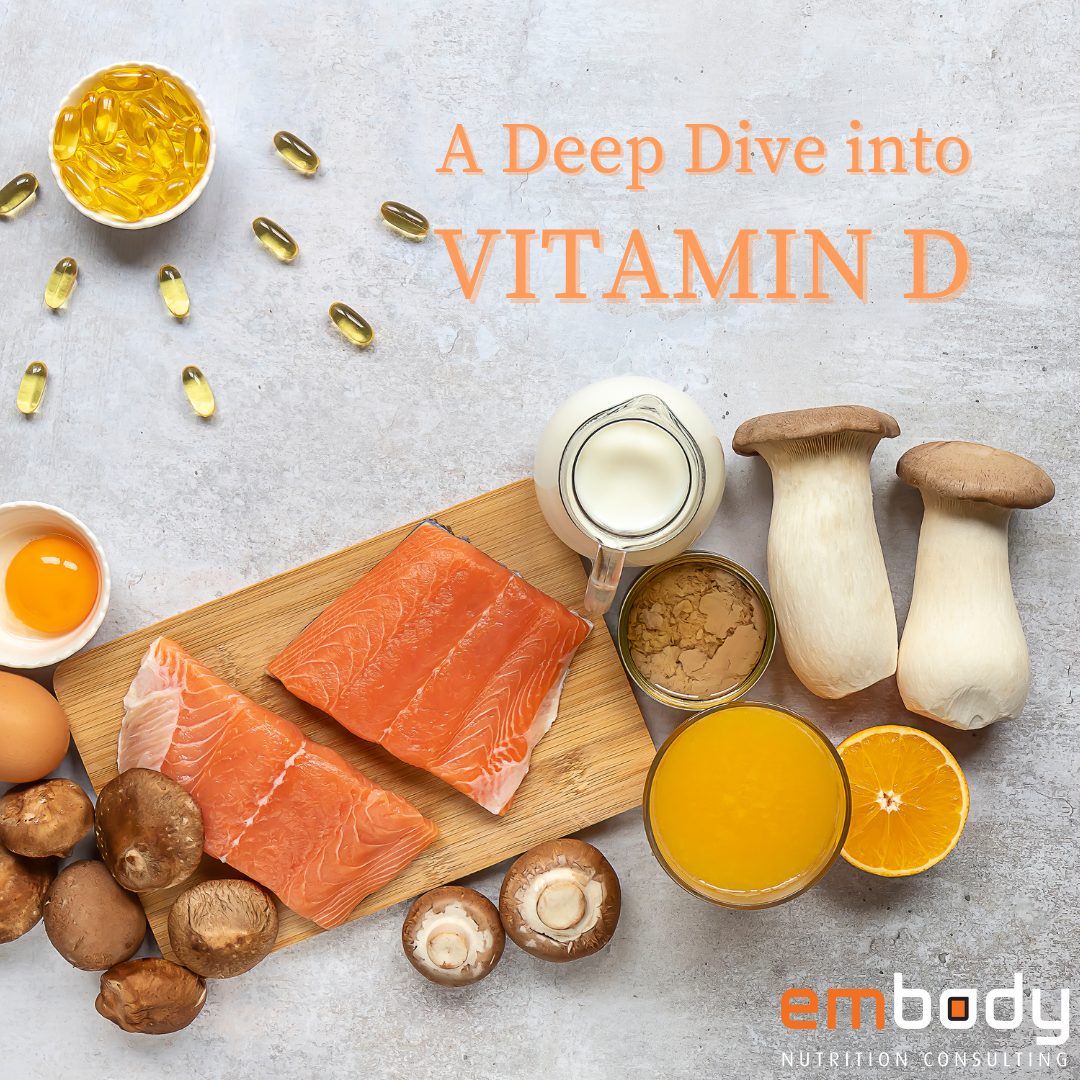It has been long understood that Vitamin D has an essential role in supporting healthy and happy bones. But emerging evidence uncovers that the benefits of Vitamin D span much further than just bone health. We are going to dive deeper into everything you need to know about vitamin D and whether or not it has a place in the life of the everyday athlete.
What is Vitamin D?
Vitamin D comes in two main forms: Vitamin D3 (cholecalciferol) which is produced in animals (including humans) and Vitamin D2 (ergocalciferol) which is produced in plants and fungi. Some studies suggest Vitamin D3 is the preferred form for increasing the levels of vitamin D in the body and keeping those levels higher for longer. Vitamin D is a fat-soluble vitamin which means that it is absorbed along with fats from our foods.
Why is it important for athletes?
Vitamin D has long been known for its importance in helping the body to absorb and retain the calcium from our food, which is essential for building stronger bones. However, many of our body’s cells also have the machinery to process Vitamin D and lots of research is still being done in these areas. For example, in muscle cells, Vitamin D can help optimise muscle function and repair.
Several studies have shown reduced injury rates and better sports performance (e.g. increased strength, power, reaction time and balance) in athletes with higher levels of vitamin D. Just like the muscles in your arm, your heart is basically a large muscle, therefore Vitamin D can also play a role in keeping your heart health by helping to control blood pressure.
There is also strong evidence supporting the beneficial link between Vitamin D and the immune system. Vitamin D can help give your body the boost it needs fight off infection by reducing your symptoms and speeding up your recovery time so you can get back to training.
Sources of Vitamin D
The main source of Vitamin D (sometimes nicknamed the “the sunshine vitamin”) comes from skin exposure to the sun (UVB radiation). Unlike other vitamins, humans have the capacity to naturally make Vitamin D in the body.
Recommended amounts of sun exposure vary between individual skin colour and geographic location. For example, in individuals with moderately fair skin that live in Sydney the recommended exposure times are 6 – 8 min in Summer (at 10am or 2pm) and 26 – 28 min in Winter (at 10am or 2pm). For people with darker skin, exposure times may be 3 – 6 times longer, due to a pigment in the skin called melanin that reduces absorption of sunlight.
In addition to sunlight, there are a few foods that contain Vitamin D, however it can be quite challenging to meet Vitamin D requirements through the diet alone. These include:
- Oily fish (e.g. salmon, barramundi, sardines)
- Egg yolks
- Mushrooms
- Margarine fortified with Vitamin D* (e.g. Flora, Meadow Lea)
- Dairy and plant milks fortified with Vitamin D* (e.g. Vitasoy Calci-Plus, Devondale Vital Plus)
- Cereal products fortified with Vitamin D* (e.g. Kellogg’s Special K)
*Vitamin D can be commercially added to some foods products. Check the products ingredients list to see if it contains added Vitamin D.
Who is at risk of deficiency?
People who are at risk of Vitamin D deficiency include those who:
- Live in latitudes that are > 35 degrees north or south of the equator where the sun exposure is weaker (e.g. Sydney = 34 degrees)
- Have darker skin
- Train indoors or during hours of the day with little sun light
- Wear clothes that cover majority of the body (> 35% of your skin should be exposed to sunlight)
- Use sunscreen regularly
- Have conditions that disrupt gut function (e.g. inflammatory bowel disease, coeliac disease)
- Take certain medications (e.g. epilepsy medicines)
Should I supplement? And if so, how much?
Test, don’t guess. Vitamin D deficiency can be detected by a blood test. If you feel like you are at risk of Vitamin D deficiency visit your local GP to get checked. Athletes who are confirmed to have a low Vitamin D status may be prescribed a Vitamin D supplement of 2000 IU (50 micrograms) per day for 1 – 2 months until levels are restored (confirmed by a follow up blood test).
The ideal Vitamin D range is around 75 – 120 nmol/L. Several studies have found low Vitamin D levels among athletes and there is emerging evidence to suggest supplementing Vitamin D in athletes with sub-optimal levels may benefit performance. Higher Vitamin D levels may be preferred for athletes to provide a greater safety margin however, it may not be necessary to supplement if levels are within an ‘ideal’ range.
Are you an athlete wanting more sports nutrition info? Make sure you check out the Embody Membership for recipes, meal plans, nutrition resources and more!

